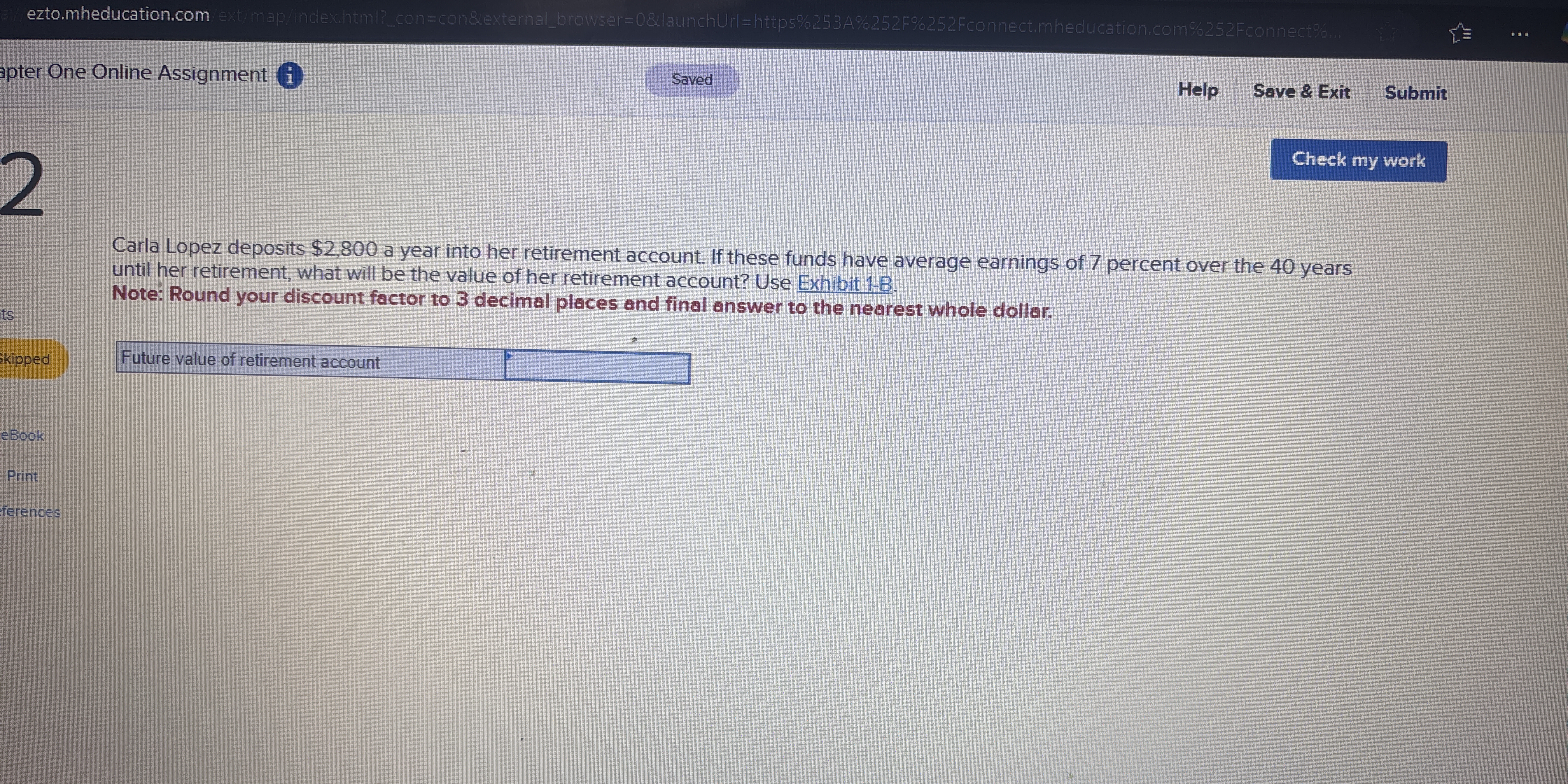Carla Lopez deposits $2,800 a year into her retirement account. If these funds have average earnings of 7 percent over the 40 years until her retirement, what will be the value of... Carla Lopez deposits $2,800 a year into her retirement account. If these funds have average earnings of 7 percent over the 40 years until her retirement, what will be the value of her retirement account? Note: Round your discount factor to 3 decimal places and final answer to the nearest whole dollar.

Understand the Problem
The question is asking for the future value of a retirement account based on annual deposits, an interest rate, and the number of years until retirement. We will utilize the future value of an annuity formula to calculate this.
Answer
$558,000$
Answer for screen readers
The value of Carla's retirement account will be approximately $558,000.
Steps to Solve
- Identify the Future Value of Annuity Formula
The formula for the future value of an annuity (FV) is given by:
$$ FV = P \times \frac{(1 + r)^n - 1}{r} $$
where:
- ( P ) is the annual payment (deposit),
- ( r ) is the annual interest rate (as a decimal),
- ( n ) is the number of years.
- Substitute the Values into the Formula
Given:
- ( P = 2800 )
- ( r = 0.07 )
- ( n = 40 )
Substituting these values into the formula yields:
$$ FV = 2800 \times \frac{(1 + 0.07)^{40} - 1}{0.07} $$
- Calculate the Factor and the Future Value
First, calculate ( (1 + 0.07)^{40} ):
$$ (1 + 0.07)^{40} \approx 14.974 $$
Then, substitute this back into the future value formula:
$$ FV = 2800 \times \frac{14.974 - 1}{0.07} $$
- Simplify and Find the Final Value
Calculate inside the parentheses:
$$ 14.974 - 1 = 13.974 $$
Now substitute this back:
$$ FV = 2800 \times \frac{13.974}{0.07} $$
Calculating ( \frac{13.974}{0.07} ):
$$ \frac{13.974}{0.07} \approx 199.6285714 $$
Now calculate ( FV ):
$$ FV \approx 2800 \times 199.6285714 \approx 558,000 $$
Round to the nearest whole dollar.
The value of Carla's retirement account will be approximately $558,000.
More Information
The future value is calculated using the concept of compound interest applied to repeated deposits. This showcases the power of regular saving and compounded returns over a long duration, emphasizing how consistent contributions can lead to significant wealth accumulation.
Tips
- Forgetting to convert the interest rate from a percentage to a decimal before using it in the formula.
- Not rounding numbers correctly at various steps, leading to inaccuracies in the final answer.
AI-generated content may contain errors. Please verify critical information